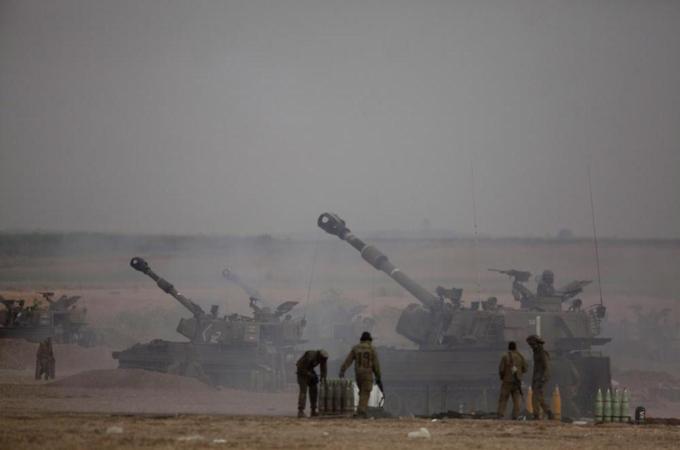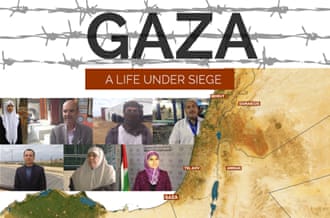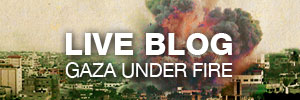Since 1948 Israel has drawn a long list of military aggression, human rights violations and war crimes.
|
| ||
|
| ||

More than 2,000 Palestinians have been killed in Israel's latest offensive on Gaza [Getty Images]
| ||
Israel has become an outlaw state. In his book, The Law of Peoples, John Rawls defines an outlaw state as one that systematically violates the universal principles of human rights, and commits aggression against other nations. Israel is guilty of repeated such violations as well as several massive acts of aggression, making it reasonable and responsible to identify it as an outlaw state.
Israel's military aggressions against other countries
Israel was born in 1948. Resolution 181 of the United Nations General Assembly is widely regarded as the most convincing legal basis for founding the State of Israel. At that time Palestinians were awarded 45 percent of historic Palestine, while 54 percent was allocated to Israel, and 1 percent was set aside as a special zone to be used for the internationalised city of Jerusalem.
After the 1948 War with the neighbouring Arab nations, Israel's territorial gains reduced the Palestinian share to only 22 percent. In the 1967 War, Israel occupied the remaining Palestinian territory, which had been administered since 1948 by Jordan and Egypt, and since that time has encroached on occupied Palestine in major unlawful ways, rendering impossible the project of a Palestinian state.
Additionally, Israel has launched a series of brutal aggressive attacks against Gaza (2008-09, 2012, 2014) violating international law, the UN Charter, and the laws of war.
Further aggravating Israel's reputation are numerous acts of aggression against several other sovereign states:
Military attacks on Iraq in June 1981 that destroyed Osirak nuclear reactor that was under construction to disrupt Iraq's nuclear programme and to perpetuate Israel's regional monopoly over nuclear weaponry.
Invasions of Lebanon in 1978 and 1982, coupled with the Israeli occupation of southern Lebanon until 2000. In September 1982 Israel was complicit in the Sabra and Shatila massacre carried out by Maronite Phalangist militia units in which between 1500 and 3000 Palestinian women, children, and disabled persons were murdered in cold blood.
Military attack on the PLO Headquarters in Hamman, Tunisia in October 1985, killing 60, which was condemned by the UN Security Council.
Invasion of southern Lebanon in 2006 that resulted in the 33 days warfare directed at Hezbollah, the destruction of residential sections in the southern Beirut, applying the "Dahiya Doctrine" - the rationalisation given for unlawful Israeli reliance on disproportionate military power used against the Palestinian people.
Attacks on October 2, 2007 on Syria destroyed its nuclear reactor in Deir ez-Zor region.
The attack in May 2010 in international waters on the Turkish passenger ship Mavi Marmara that was part of the Freedom Flotilla bringing humanitarian assistance to the people of Gaza in defiance of the international blockade, killing nine Turkish nonviolent peace activists.
Repeated military attacks in Sudan in 2009, 2011, and 2012, supposedly to disrupt the supply of weapons to Hamas in Gaza, causing many deaths.
In addition, Israel has occupied Syria's Golan Heights since 1967, built unlawful settlements, and established a permanent presence. Israel has refused to withdraw from the West Bank and East Jerusalem, as called for by unanimous Security Council Resolution 242.
Israel secretly and illegitimately acquired an arsenal of an estimated 300 nuclear warheads, becoming the only nuclear power in the Middle East, and the only country in the world that refuses to acknowledge its possession of nuclear weapons.
Systematic violations of human rights and the apartheid regime
Former US President Jimmy Carter declared in his book Palestine: Peace not Apartheid that Israel's occupation regime in the West Bank possesses the systematic discriminatory features of an apartheid regime. As well, the Palestinian minority resident in Israel is subject to fifty discriminatory laws that restrict their individual and collective rights. The Rome Statute of the International Criminal Court treats apartheid as a crime against humanity.
Palestinians in the West Bank have been living without the protection of law or the possession of rights since 1967, being subject to military administration and the oppressive practices of the Palestinian Authority, while the unlawful settler population enjoys the full protection of Israel's rule of law.
As Gideon Levy, the progressive Israeli journalist writes, Israel is "only a democracy for its Jewish citizens who are quick to fall in line with the mainstream every time Israeli tanks roll across the border." Jewish citizens of Israel who dare oppose their country's aggressions are often attacked and threatened. Palestinian Israelis are treated worse, harshly restricted and subject to acute suspicion whenever a security issue arises.
Israel's war crimes against Palestinians
Not only does Security Council Resolution 465 speak twice of "Palestinian or Arab territories occupied since 1967", but also declares and affirms that the Jewish settlements in the Palestinian territories represent a violation of Fourth Geneva Convention. The defiant refusal to dismantle the settlements - unlawful under Article 49(6) - and the refusal to remove the separation wall as mandated by the International Court of Justice are grave violations of this convention, and as such amount to war crimes.
Israel removed its military forces and settlers from the Gaza Strip in its "disengagement" initiative in 2005, but in actuality kept effective control of Gaza, and remained bound by the obligations as an occupying power contained in international humanitarian law.
In effect, Israel transformed the conditions of life in Gaza from direct military administration to life imprisonment of the population in the largest open-air jail on earth. Israel retained its total control of Gaza's entrances and exits, of its airspace and offshore waters, disrupting life within the prison walls by lethal periodic violent incursions. Most Palestinian people living in Gaza have effectively been locked in ever since 1967, unconditionally since 2007. During this period, Israel has periodically launched massive military operations against Gaza; imposed and maintained an illegal blockade; committed frequent acts of cross-border violence; and committed numerous grave war crimes:
Israel attacked Gaza in 2008-2009, killing more than 1400 Palestinians, injuring 5300, creating 51,000 internal refugees, destroying 4000 homes, inflicting $4bn economic damage, and disallowing the delivery of materials needed for reconstruction efforts.
Israel's attacks on Gaza in 2012 killed 173 and injured 1,221, provoked by the Israeli targeted assassination of the Hamas military leader, Ahmed Jabari, as he was delivering a signed truce document.
Israel's 2014 aggression against Gaza launched on July 8 has so far killed more than 2,000 Palestinians, injured nearly 10,181, with 75-80 percent of the casualties being civilians. This massive Israeli military operation has caused more than 660,000 Gazans to be internally displaced, highlighting the denial of any right of Palestinians to leave the combat area throughout the military onslaught that has terrorised the entire population of Gaza. It is estimated that 459 Palestinian children were killed and as many as 3,000 injured.
In contrast, Israel's losses in this attack have led to 68 Israeli deaths, of whom 65 were soldiers. The casualty disparity and the ratio of military to civilian deaths are significant indicators of how to apportion moral responsibility of the carnage caused.
This is Part One of Richard Falk and Akbar Ganji's essay on Israel's international law violantions. The second part will be published on Thursday, August 21.
Richard Falk is Albert G Milbank Professor Emeritus of International Law at Princeton University and Research Fellow, Orfalea Center of Global Studies. He is also Former UN Special Rapporteur on Palestinian human rights.
Akbar Ganji is one of Iran's leading political dissidents and has received over a dozen human rights awards for his efforts. Imprisoned in Iran until 2006, he is the author of The Road to Democracy in Iran, which lays out a strategy for a non-violent transition to democracy in Iran
|









No comments:
Post a Comment